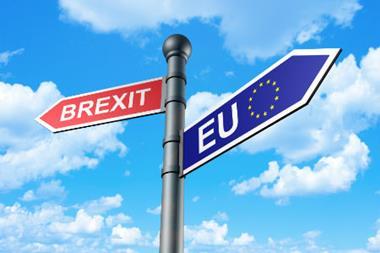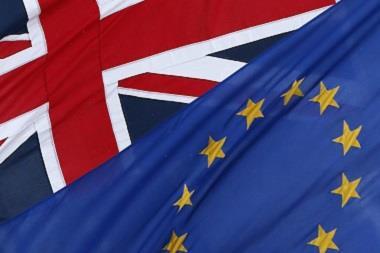Chief executive of AIG Europe and AIG UK gives his view on the challenges and opportunities of Brexit

The last month has delivered a series of seismic shocks to the UK, Europe and the wider world. The recent decision by UK voters to leave the European Union has created unprecedented levels of uncertainty and businesses are waiting to see when the exit will be triggered, how the negotiation will proceed and what trading relationships the UK will establish.
Many of the debates in the EU referendum in the UK are reflected elsewhere in the world – as the increasingly heated debate in the US Presidential elections demonstrates. There is a growing sense of a desire to retreat behind national borders. Indeed, there is evidence of a rising tide of protectionism which is undermining global trade and threatening economic growth. According to statistics compiled by Global Trade Alert, governments introduced 539 protectionist measures in the first 10 months of 2015, compared to 407 in the same period in 2014. These numbers are a clear indication that continuing globalisation is under threat.
Insurance is however, by its very nature, a global business – in order to help clients to manage risk and its consequences, we need to be able to offer predictability and stability. The ability to do that requires both understanding local environments and differences across a global picture.
Every single business – and I include ourselves in this – is looking at a new world order and thinking about what risks and challenges they should now be concerned about. Are the dramatic currency moves we have seen a harbinger of more expensive input prices, or a new dawn of greater export competitiveness?
Stock market performance would suggest that it is the smaller to medium sized operations that face greater uncertainty and risk. Among this sector, uncertainty may particularly focus on concerns about cashflow, credit and access to finance – whether that is paying suppliers, managing receivables or being able to access capital to grow.
New trade deals between the UK and its trading partners may lead to supply chain disruption, dealing with new customers with whom relationships are still untested, trading in new markets may mean longer payment terms to account for shipping time and also the greater reliance on supplier credit in many developing markets in the absence of mature working capital solutions.
Large multinationals will also be grappling with issues regarding cross-border trade agreements and whether they need to adapt their corporate structures to respond to change, as well as assessing the impact on their global workforce. Whether UK nationals are working in other EU countries or vice versa, the issues of residency and repatriation may be high on the agenda – topics that are very disruptive both from a personal and corporate perspective.
And it is not as if the world of business was without challenges before we went into this period of uncertainty. For example, the challenge of protecting data and systems against cyber-attack continues to increase, as does the threat of political risk, terrorism and business interruption.
As one of the world’s largest insurers, our role is to mitigate and manage the risks to our clients. We may not have all the answers, but we do have a breadth of knowledge, risk insight, industrial expertise and dedication to innovation that we will bring to bear on the current situation.
Also, as one of the world’s largest insurers serving multinational clients across the globe, we have responded to regulatory change before, we are agile and, through our branches in 23 EU countries, we will position ourselves in the best way possible to ensure we continue to serve our clients. We are well positioned to adapt to the challenges and opportunities this new world order is bringing, and look forward to working with our clients and brokers to embrace the future.




















No comments yet